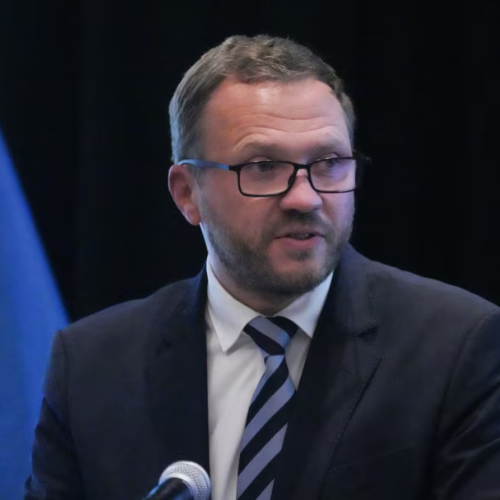Estonia has taken a firm stance against the Georgian government, announcing sanctions on more than a dozen top officials, including the Georgian prime minister. The move comes after widespread reports of violent crackdowns on pro-European protesters in Georgia. These protesters accuse the ruling Georgian Dream party of threatening democracy and attempting to align the country with Russia, its former Soviet ruler.
The situation escalated as Georgian authorities responded to peaceful demonstrations with force. Police used water cannons and tear gas to disperse crowds. Security agents raided the offices of opposition parties, attacked journalists, and physically assaulted dissenting lawmakers. The actions have sparked condemnation worldwide, with Estonia being one of the first countries to take concrete action.
Estonia’s Foreign Minister, Margus Tsahkna, called these actions by Georgian authorities “criminal” and a direct violation of human rights. “The violence against protesters, journalists, and opposition leaders cannot be ignored,” Tsahkna said. He also urged all European Union member states to respond with similar measures. Estonia, along with other Baltic states, has already banned several high-ranking Georgian officials from entering its territory.
Brutal Crackdown on Protesters
Protests in Georgia began following the October elections, which opposition parties claim were rigged. Many people believe the results were manipulated to keep the ruling Georgian Dream party in power. Tensions escalated further in November when Georgian Prime Minister Irakli Kobakhidze made a surprise decision to halt Georgia’s talks to join the European Union. This decision directly opposes the will of the Georgian people, as joining the EU is supported by approximately 80% of the population, according to polls. It is also enshrined in the country’s constitution as a national goal.
Anger over this decision led to nightly demonstrations. Tens of thousands of citizens flooded the streets, waving European Union flags and calling for the government to reverse its course. However, instead of listening to the people, the Georgian government doubled down, using excessive force to suppress the protests.
Videos and images from the protests show police firing tear gas into peaceful crowds and spraying water cannons to break up gatherings. Security agents stormed opposition party offices, seizing documents and detaining leaders. Journalists covering the events have also been targeted, with many reporting physical attacks and harassment. Lawmakers who have spoken out against the government’s actions have not been spared either.
Ukraine Imposes Sanctions on Georgian Officials Amid Pro-EU Protests
The opposition has described the crackdown as an all-out attack on democracy. They accuse the Georgian Dream party of attempting to silence any voices of dissent and moving the country closer to authoritarianism.
Estonia’s Strong Reaction
Estonia has been one of the loudest voices in condemning the Georgian government’s actions. Along with its Baltic neighbors, Estonia has long supported Georgia’s aspirations to join the EU. However, the recent violence has led Estonia to take drastic measures to show its disapproval.
The sanctions imposed by Estonia include travel bans for several top Georgian officials, including the prime minister and the interior minister. Among those targeted is Georgia’s richest man, Bidzina Ivanishvili, who is believed to wield significant influence behind the scenes in Georgian politics. Ivanishvili is often referred to as the “puppet master” of the Georgian government, and his role has drawn heavy criticism from both domestic and international observers.
Estonia Calls for International Action
This is not the first time Estonia has taken such steps. The Baltic state had already banned several Georgian officials from entering its borders due to previous concerns over democratic backsliding. However, the fresh wave of sanctions shows Estonia’s growing frustration with Georgia’s handling of recent events.
Margus Tsahkna, Estonia’s foreign minister, has urged other EU countries to follow suit. He called the Georgian government’s actions a direct attack on human rights and democracy, saying, “This kind of violence cannot go unpunished.”
The international criticism of Georgia’s ruling party has only grown stronger following its decision to install a loyalist as president in a controversial election that was boycotted by opposition parties. This move has further deepened the constitutional crisis in the country and fueled public anger.
With nightly protests continuing and the government refusing to back down, the situation in Georgia remains tense. Estonia’s sanctions are a clear message that actions against democracy and human rights will not be tolerated. However, how this pressure will affect the Georgian government’s decisions remains to be seen.
For now, Estonia has cemented its role as a leading voice for democracy in the region, standing up against what it views as blatant disregard for human rights and the will of the Georgian people.


